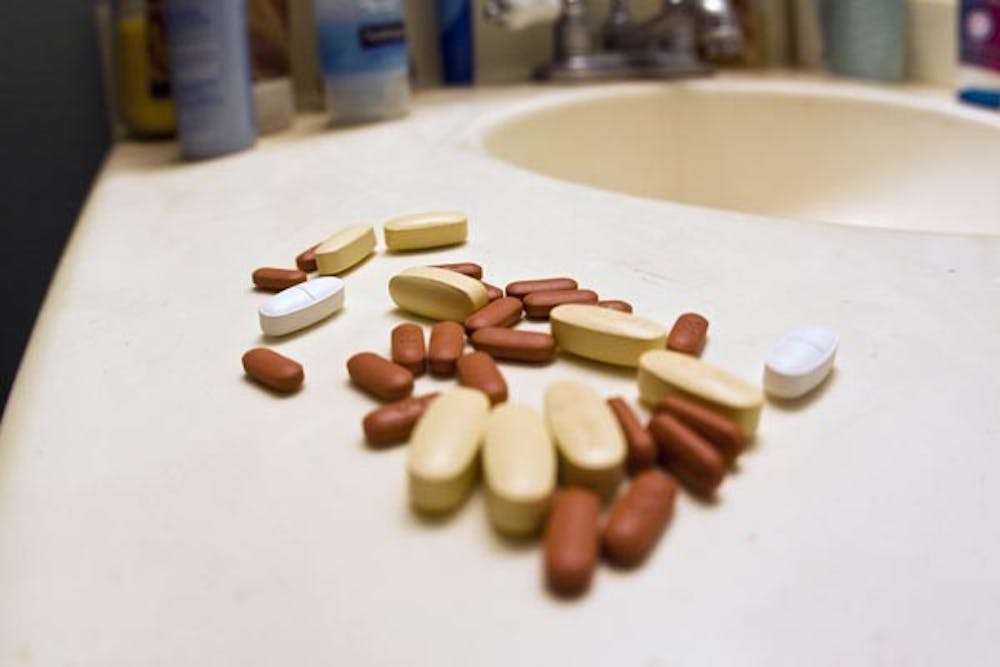Students at ASU and across the country have been ill equipped by the school system to make decisions about drugs. In a world where illegal drugs are widely available and commonly used, it is a gamble to rely on parental child-rearing and social rules to educate adolescents and young adults on illicit substances.
When a university has an entire student population that has not been through an effective formal drug education program, the University should educate ignorant students.
“D.A.R.E. to keep kids off drugs” — The slogan is displayed on T-shirts and bumper stickers across the U.S. The Drug Abuse Resistance Education program that focused on the harmful effects of drugs has been implemented in three quarters of the nations’ school districts. Despite its popularity, scientific studies have shown time and time again that the program has little effect and can even be counterproductive in the effort to reduce adolescent drug usage.
ASU researchers helped with the 2010 switch to a new curriculum for students in grades 6-9. The keepin’ it R.E.A.L. program, which focuses more on developing students’ skills to refuse, explain, avoid and leave situations has demonstrated positive results. I'm pleased that a program with an endorsement from every president since President Ronald Reagan and hundreds of millions of dollars invested now has scientific evidence to back it up. But what can be said of the current generation of college students who participated in a drug prevention program that failed to prevent them from using drugs?
I would like to see ASU and other institutions provide a more expansive drug education that is based on the premise that you will not be able to prevent everyone from experimenting with and using drugs.
When looking for information through ASU, I was able to find some materials through the University’s Wellness page that I found helpful regarding drugs. In particular “the ‘A’ list”, which states that it addresses common questions and misconceptions about drugs.
One problem that I found in ASU’s resources and that is pervasive across the drug education system is that people aren't taught what I would call “safer drug use,” seeing as “safe drug use” can be somewhat of an oxymoron. Outside of the more extreme negative effects on people, it is hard to find information on how particular drugs affect the brain at all, as can be seen with ASU’s informational sites.
Arizona teaches “abstinence only” sex education. Abstinence only education does not work for sex, and it shouldn't work for drugs either. Declaring a war on abstinence only education should in no way be seen as a stance on the acceptability of sex or drug usage. Rather, advocating for students to have a holistic drug education is a pragmatic way to address the fact that regardless of what is taught, there will be people who opt to use drugs.
A further way that students are being let down is by overstating the negative effects of drugs as a scare tactic. Educators must understand that while this appeals to many students who are not inclined to try drugs, there are a number of others who they will be ruining their ethos with. For this reason, I find it important to present all of the facts available in the most unbiased way possible.
Schools need to have open and brutally honest conversations about drugs to be most effective. By presenting accurate explanations on how particular drugs affect brain chemistry and behavior, as well as all of the adverse effects and worst-case scenarios, schools could ultimately protect the most students.
Related Links:
Pop culture trivializes dangers of party drugs
Drug Policy and Problems: The Internal and External War
Reach the columnist at bjking6@asu.edu or follow @benkingaz on Twitter.
Like The State Press on Facebook and follow @statepress on Twitter.
Editor’s note: The opinions presented in this column are the author’s and do not imply any endorsement from The State Press or its editors.
Want to join the conversation? Send an email to opiniondesk.statepress@gmail.com. Keep letters under 300 words and be sure to include your university affiliation. Anonymity will not be granted.




